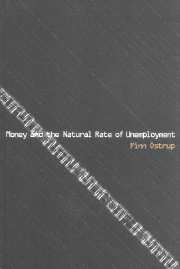Book contents
15 - Policy implications of monetary non-neutrality
Published online by Cambridge University Press: 22 September 2009
Summary
Introduction
This book has addressed an important question in economics, that is, the role of monetary policy and of monetary regimes in determining the levels of production and employment.
For a long time, the economics profession has inclined to the ‘new classical’ view according to which demand policies have no impact on production beyond the shorter term, the length of which is determined by informational deficiencies or the duration of nominal wage contracts. It has been the aim of this book to reassess the role of money and monetary regimes as instruments which can affect natural unemployment also in the long term. Throughout the previous chapters we have set out different mechanisms which show either inflation, the monetary regime, or specific monetary instruments (open market operations, capital and lending restrictions, etc.) to have an impact on natural unemployment, defined as the unemployment level at which wage setters optimise their preferences. These effects work in a model setting characterised by (i) full price and wage flexibility, (ii) rational expectations, and (iii) only real variables enter the wage setters' preferences. The analyses have considered a steady-state equilibrium, characterised by a constant production growth rate and levels of financial variables which lie at constant levels relative to nominal production. This view of monetary effectiveness is clearly contrary to the traditional view held by economists of long-term monetary neutrality.
This chapter discusses some of the policy implications which follow from this view of long-term monetary non-neutrality.
- Type
- Chapter
- Information
- Money and the Natural Rate of Unemployment , pp. 253 - 259Publisher: Cambridge University PressPrint publication year: 2000



